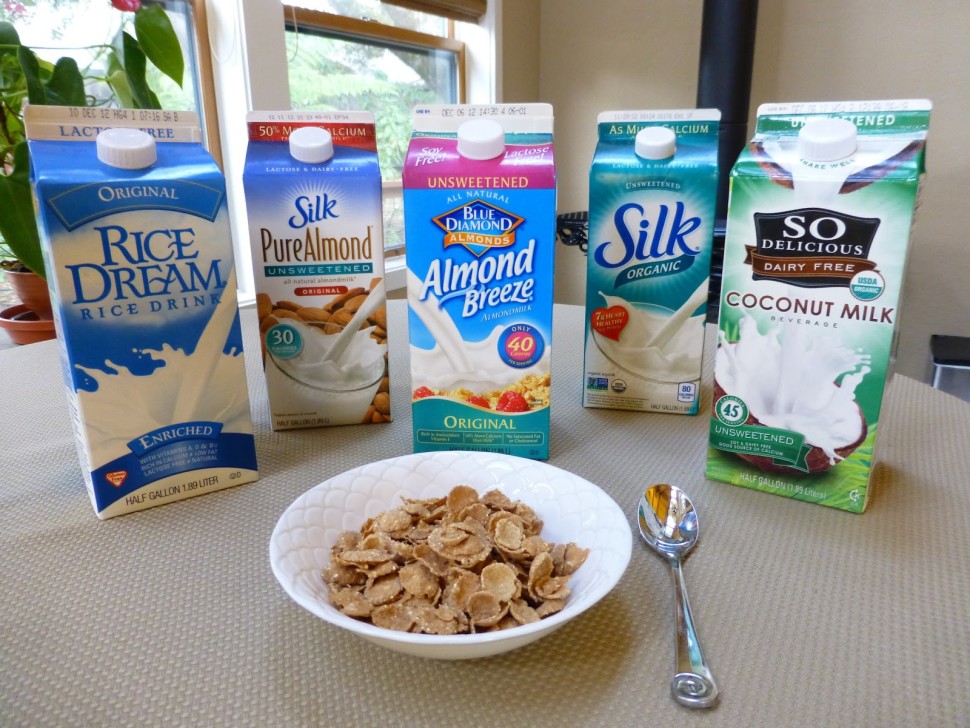Milk, it’s for babies. Dairy consumption is undergoing a revolution as a rapidly growing number of consumers switch to dairy-free milk alternatives. This is great news for everyone’s health– dairy consumption has gone down 25% from 1975-2012. As a group, the consumption of cow’s milk alternatives have gone up about 10% a year since 1999.
There’s a lot of hype going around about milk alternatives- basically labelling different options as the good, the bad and the ugly. I thought it wise to dig into them and put together an easy-to-understand guide to the most common dairy alternatives out there.
A “pro” to all of the below dairy-free alternatives are that they are lactose-free. 25% of Americans, and 75% of the rest of the world are lactose intolerant. An even better pro is that none of the dairy free alternatives will give you breast or prostate cancer, multiple sclerosis, or Parkinson’s disease, all of which are now tied to the consumption of dairy through peer-reviewed medical research.
Which of these is the best? That’s up to you, and what you want out of your beverage. Some are higher in protein, calcium, and nutrients, and others may be more appealing to your tastes. There are also food allergies to watch out for. Just like lactose intolerance, there are soy, nut, and gluten allergies to consider with some of the dairy-free options. With any of these alternatives, it is good to look for GMO-free organic versions to avoid toxic pesticide residues finding their way into that beautiful body of yours.

Almond Milk
Almond milk is a the new big thing, wildly popular and easy to find. It’s creamy with a dairy-like texture, which a lot of dairy converts enjoy.
Pros: Most people love the way almond milk tastes. Low cal (about 1/3 the calories of cow’s milk), and packed with magnesium and Vitamin E and other nutrients found in cow’s milk. Almond milk is low fat and has less natural sugar than most cow’s milk.
Cons: Less protein and essential vitamins than cow’s milk, if you want nutrients it is good to look for a fortified brand. Almond production is really tough on the environment because almonds are a water-intensive crop. In the United States most of our almonds come from California and increased demand is hitting the drought-stricken state hard on the water. Almond milk is also pretty watered down, you aren’t getting that much almond goodness per cup. Keep an eye out for thickeners and preservatives.
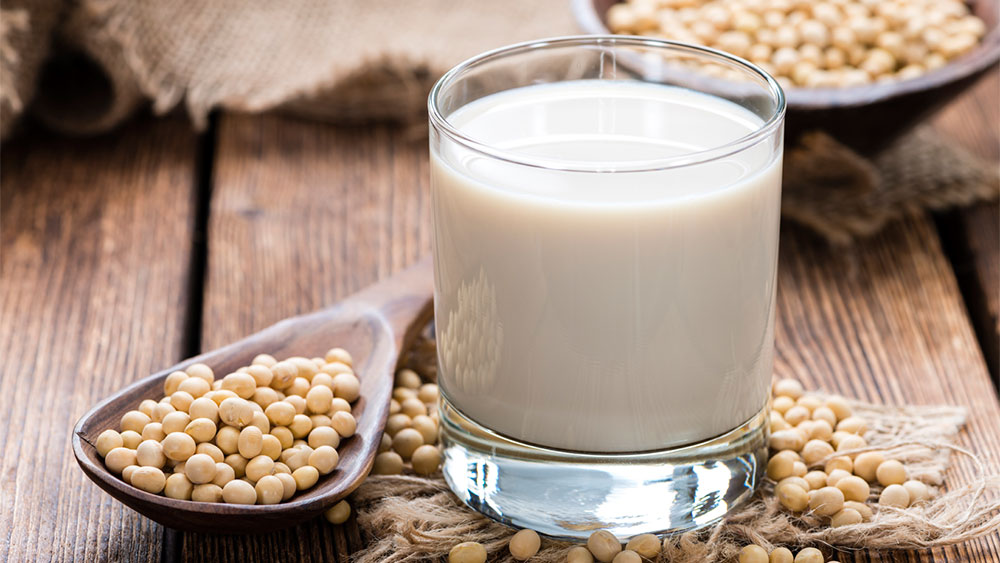
Soy Milk
OG dairy-free, soy milk has been around, and remained popular, more many years now. (Soy milk happens to be my personal favorite cow’s milk alternative) It’s texture is grainy with a strong soy flavor. Soy milk often comes sweetened, unsweetened and is sold in a variety of flavors.
Pros: Soy milk is the protein king of dairy alts, and actually has more protein than cow’s milk. Soy milk is low in saturated fats is often fortified.
Cons: No, soy does not cause breast cancer, but there are some people allergic to soy. Soy can be heavily contaminated by toxic pesticides, but it easy to find non-GMO organic sources.
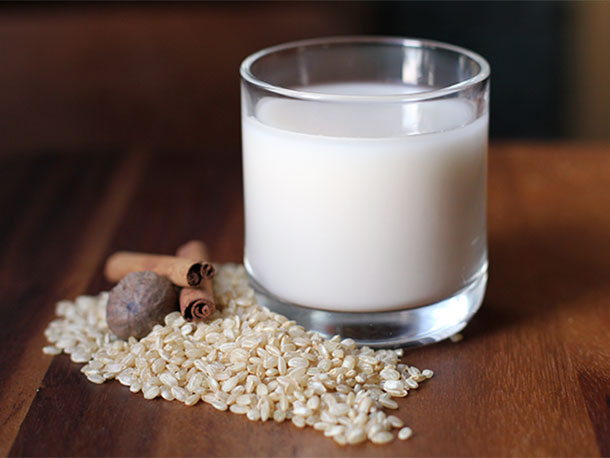
Rice Milk
Rice milk is another mainstay in the dairy-free section. It’s made from combining boiled rice with brown rice starch and brown rice syrup.
Pros: Brown rice is packed with nutrients, and this carries over to rice milk. A good source of carbs too, though this may be a con if you are cutting down the waistline. It’s the best option for people with food allergies since it doesn’t have nuts, gluten, or soy. Cheaper than many other dairy alternatives, and fairly easy to make at home.
Cons: Low in protein, high in calories. It’s consistency is watery, so it’s not a great cooking and baking substitute. It may contain oil and thickeners, so take a good look at the ingredient list.
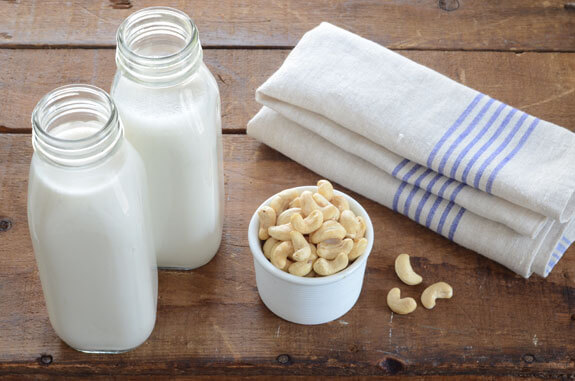
Cashew Milk
Another “nut-milk” dairy alternative, cashew milk is similar in many ways to almond milk.
Pros: Awesome texture if you want something similar to cow’s milk. Loaded with calcium, 50% more than cow’s milk.
Cons: Low protein and it can be expensive. Cashew milk is high calorie if you make your own. Store bought versions are as calorie heavy because they are watered down.

Hazelnut Milk
A popular new “milk” on the market, coffee houses love hazelnut milk because of how well it agreeably pairs with coffee.
Pros: Good source of B1, B2, and B6, Vitamin E and Omega-3 fatty acids. Hazelnut milk is low cal with zero cholesterol.
Cons: Similar to almond and cashew milk, hazelnut milk is low in protein and not for those who have nut allergies.
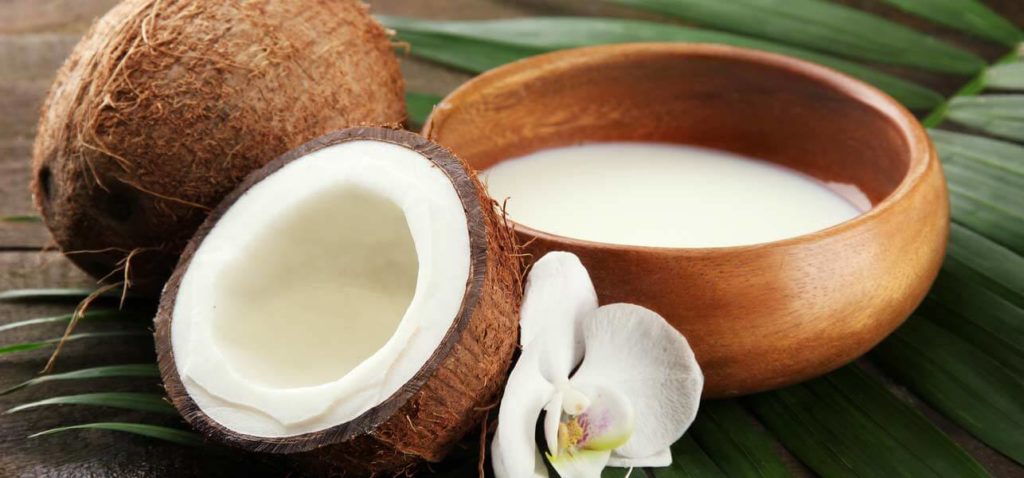
Coconut Milk
Thick and creamy, coconut milk is enjoyed by people who want something with the texture of cow’s milk.
Pros: Great source of potassium- 630mg. per cup. Soy and gluten free, and great for cooking. Coconut milk is low in cholesterol and sodium and is loaded with Vitamin B12.
Cons: Not a lot of nutritional value, and is the highest in saturated fats of any of the common dairy alternatives. Coconut milk can solidify and separate, making it undrinkable unless you heat it up.
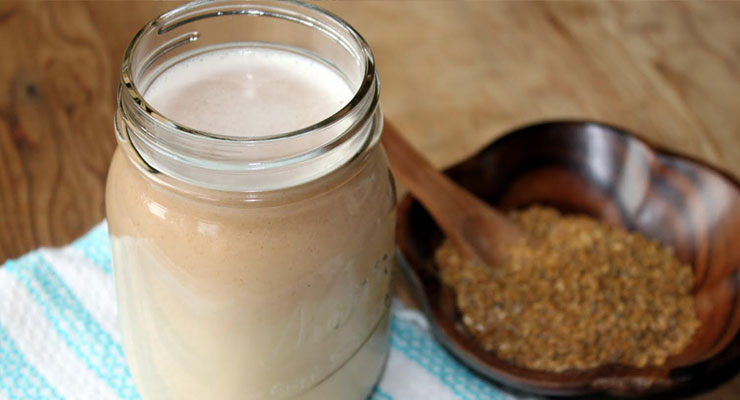
Flax Milk
If you are looking for heart healthy for a dairy alternative that is often ethically produced, flax milk is the way to go.
Pros: Flax is a fiber powerhouse and flax milk can help prevent heart disease, lower high blood pressure. Often fortified with calcium.
Cons: Low in protein and tends to be heavily sweetened.
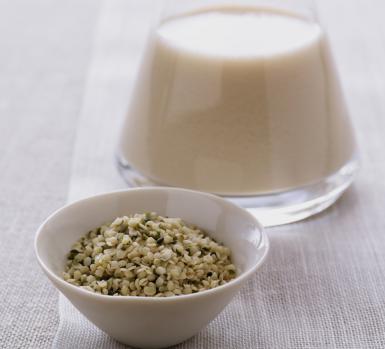
Hemp Milk
Nope, it won’t get you high, but it will get you healthy.
Pros: Solid source of iron and omega-3 and 6 fatty acids, hemp milk is good the brain, and the heart. Hemp milk is is a source of iron and is low sugar and zero cholesterol.
Cons: This high-cost dairy alternative is low in calcium, but sometimes fortified to make up for it. Hemp milk is also low in protein. It can be heavily sweetened, be sure to check the label.

Oat Milk
This, you guessed it, oaty tasting dairy alt that is still a little less know than some of the other dairy alt big hitters.
Pros: Great for the heart, zero cholesterol, and a good source of folic acid and Vitamin E. Oats are high in soluble fiber and great for the heart
Cons: High in sugar and too thin for baking. Contains thickeners, and you want to look for organic versions to avoid the toxic pesticides conventional oats are grown with.

Macadamia Milk
Joining the nut milk options, macadamia milk is the new kid on the block!
Pros: Macadamia nuts are cholesterol busters, a good source of Vitamin A and E, antioxidants, and is good for the skin.
Cons: Low in protein like other nut milks and is definitely something for people with nut allergies to stay away from.


